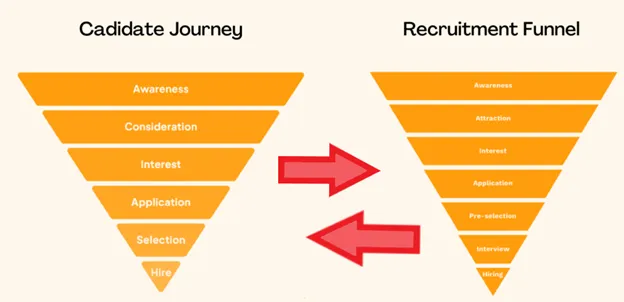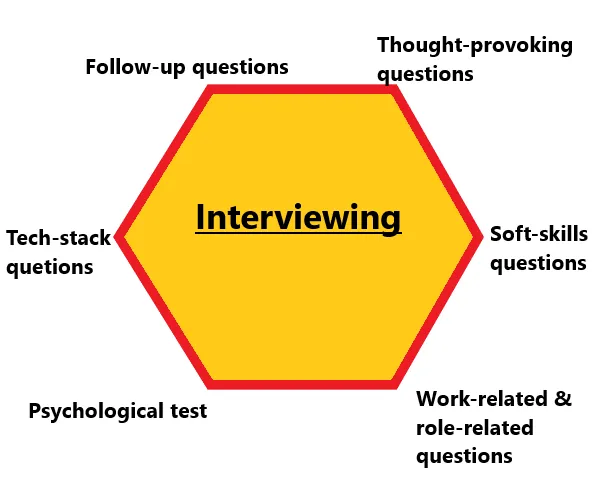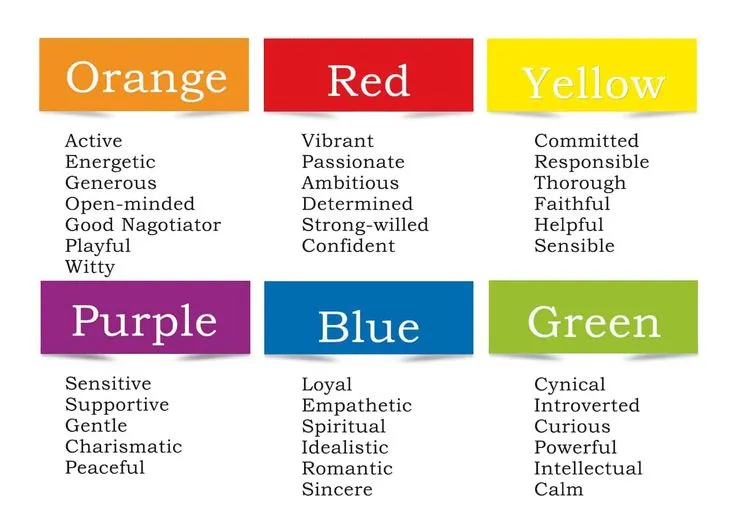Interview Questions Every CTO Has to Ask When Hiring a Remote Software Engineer in 2025
Software developers are among the most demanded professions today. With ever-growing open vacancies in the IT sector, the number of devs worldwide is expected to reach its maximum by 2033. The US Bureau of Labor Statistics states that the overall employment of software developers, together with QA analysts and testers, will grow by 17% in 9 years.
According to the survey presented by the StackOverflow company, the list of top software engineers is led by programmers with JS, HTML/CSS, PY, SQL, TS, Bash/Shell, Java, C#, C++, and C skills.

It goes without saying that each chief technology officer searches for reliable devs with solid experience, great tech stack, awesome ambitions in the context of careers and self-development. But to find the ideal candidate is a challenging task for CTOs. The principal role of successful employment of skillful developers is interviewing, especially if your team is looking for a dev with the remote work format.
Your task is to hit the target and make hiring risk-free for the project and workflows. That is why the proper list of interview questions matters. Let’s check everything each result-driven CTO should ask candidates to shed light on the candidates’ competence and soft skills necessary for teamwork with zero hassles.
Preparation for the Interview with Devs: Where to Start?
Unpleasant statistics for software engineer recruitment by Paraform can shock even the most stress-resistant CTOs and project managers. The hiring process across various roles and requirements takes from 21 to 80 days for devs and other IT specialists. It is too long, isn’t it? But these showings are average, so focus on the quality of your interview to speed up employment and make a difference.
To start with, pay attention to the similarity of candidate journey and recruitment funnel. The number of stages together with their specific features and duration are the same both for potential developers and recruiters. While enhancing your hiring process, you help candidates to move from the into steps up to the final employment procedures faster.

It is possible to switch from outdated recruitment approaches to modern and digital-friendly ones. The recruitment funnel can be sped up with the help of:
- Relevant management tools and automation approaches (on the stages of Awareness, Attraction, Application up to the Pre-selection and Interviewing where decision-making with human print should take place). Pay attention to CRM systems that will simplify any interactions with candidates and data processing.
- The implementation of AI to hire top technical talents exceptionally cost-effectively. For example, Wild.Codes offers expert-verified profiles of the best-matching devs previously vetted by artificial intelligence. Additionally, CTOs do not need the help of traditional recruitment agencies while developing job descriptions – AI-based templates are available to hit talent pools ASAP.
- Try ATS systems and tools for data analytics improvement. Reporting optimizations and faster decision-making are guaranteed with digital transformations in the context of the employment processes CTOs need today. Explore automated talent sourcing tools for immediate search and must-have social media integrations.
To sum up, your hiring can become stress-free with modern technologies. However, not all tasks can be easily delegated to AI, automation, and digital tools. Chief technology officers should prepare for interviews. This is the final stage of any recruitment funnel. So, it is high time to discover the best questions for your first talks with potential teammates.
Your Ideal Interview Has a Hexagon Shape: Six Equally Important Edges to Consider
Imagine a so-like hexagon with various types of questions to ask. These equally important categories are essential edges of your perfect interview. It is impossible to focus only on one block of questions to understand which kind of person you have a talk with. Some technicians are true enthusiasts in coding but have problems with teamwork, self-discipline, or even deadline management.

Let’s dive into each section of questions CTOs should ask their interviewees. Do not miss any detail to find a perfect match for your project, technical needs, and harmonious work environment.
#1 Follow-Up Questions: Conversational Format, Cozy Atmosphere, Informative Dialog
Start with follow-up questions to win over your interviewee. The main task is to have a great talk and discover the candidate’s personality. Ask your potential developer about hobbies, family, and inspiring things in his/her life. Here are some examples for your follow-up quotations to take into consideration and use for your interview:
- What is your favorite season/music/animal/color/etc.?
- Use three words to describe yourself.
- Tell something about your near & dear ones.
- What things can bring you inspiration when you are tired/get stuck/exhausted?
- What is the best way to relax for you?
- What ideas do you have for team-building events?
- What is the ideal weekend for you?
- Do you like traveling? Have you ever been to exotic countries? Tell us anything about your experience.
- Name three must-read books in your opinion.
- What is on your desk - photos, creative mess, or nothing but a laptop? 😎
Feel free to smile, joke, and share your experience and a bit of personal information. If your interviewee feels comfortable, you will further have a proactive and information-rich dialog.
#2 Psychological Test: Psychometric Questions, Personality Assessment, and Many More
Be creative with this bock of questions. We are sure you will test yourself because it’s incredible to understand which kind of personality you are and whom you are hiring. For example, you may ask your interviewee to select some colors and interpret them with special-purpose charts. By the way, who are you? 😉

Try any other associations like animals, superheroes, etc. It is pretty easy to project the character and peculiarities of the figure associated with into features your dev obtains and visions/principles/goals are ruled by. Surf other questions to discover your interviewee’s:
- Sensing vs. thinking backgrounds;
- Extraversion vs. introversion profile;
- Intuitive vs. feeling properties;
- Judging vs. perceiving features, etc.
Viral psychometric tests are about the candidate’s potential in these or those roles in the team. There are online forms you may offer and ask for screenshots of results. Or choose some of the recommended questions below:
- Do you like to discuss issues you have during some challenging programming cycles? Will you ask for advice or help?
- Can you delegate anything to meet deadlines or just have more time to complete ongoing tasks?
- Are you enthusiastic to work with anybody or yourself?
- How will you act if, during brainstorming, your colleague disagrees with your strategies and ideas?
- Will you join up with colleagues if they have intense arguing about work? Or will you not?
- Will you inform your supervisor/project manager/CTO about any disputes among teammates that are not related to work processes? Why?
- You feel that your deadlines might be failed. What will you do?
- Your presentation was worse than your colleague's. Will you be disappointed or even angry about it?
- What would you do if you were teamed with colleagues who have different approaches to work, personality profiles, and visions? Would you argue, keep silent, or insist on your own solutions? Any other variant?
- You faced total criticism of your scenario for the project. What will be your feelings and actions?
Ask supplementary questions to clear any aspects of your conversation. It is likely that you realize which kind of teammate you are going to hire due to this dialog.
#3 Tech-Stack Questions: Experience, Competence, Skillset Check
There are different approaches when it comes to testing your candidate's technical skills. Please, avoid only take-home-project tasks. Most applicants dislike any programming for free. The only exception is some doubts after interviewing this developer and a desire to check the competence in this or that aspect.
It is worth noting that tech-stack questions will 100% vary from one job position to another. It is impossible to interview a JavaScipt programmer and a Laravel dev in the same way. But there are some general recommendations for your stress-free technical interview:
- Start with the check of theory. Can your interviewee explain the meanings of such terms as event bubbling, RESTful services, multithreading, etc.? Wonderful if he/she can 🥳
- Allow the interviewee to solve some coding tasks or deliver solutions for some puzzling cases programmers of the candidate’s specialization can face. For example, you can ask to explain Java connection leak and the ways to fix it. Or describe any tech algorithms related to GraphQL or REST, etc.
- Try to check one more skill great technicians have - an opportunity to work on the project from scratch. Make this part of your interview absolutely language-specific. Build a dialog around the details. For example, you can ask your candidate about the starting list of frameworks for developing fintech software (international payments on the Internet and crypto transfers). Listen attentively and note anything you would like to clarify in practice.
- Think of pair programming - provide the interviewee with some details related to the programming process and let him/her continue code-rich logic chains. This way, you will check the quality of how your potential dev can pair a problem with a CTO or any team member.
Remember that technical interviews can be based on the review of the developer’s case studies, portfolio, and previous experience. You are running this show, so steer your dialog in the right direction. But get ready for the next block of questions that will show you if this candidate meets your work responsibilities or not.
#4 Work-Related Questions: Intro for Your Check of Soft Skills
This section of questions is introductory before you will be ready to dive into the candidate’s soft skills. Three pillars to consider are:
- Task prioritization;
- Compensation & motivation tandem;
- The level of guidance required.
Most of your warm-up questions should be related to these very topics. While making these aspects clear, you can continue with other moments like work-life balance, peculiarities/benefits/issues of remote working, self-discipline factors, etc. Use the following templated variants or their variations:
- How much guidance do you need? Rate from 1 to 10.
- Does your motivation directly depend on the compensation level?
- What are you ruled for proper task prioritization by?
- Can higher compensation become the main reason for your hard work and improved deadline management?
- What is your top priority task according to your potential role in the company and the working requirements we have prepared for you?
- Do you need a supervisor every day? Should you be controlled or managed at each stage of your work?
- Do you feel comfortable if the project manager communicates with you once a week to report on programming cycles and progress? Do you need more guidance while working remotely?
- Can you change priorities if force-majeure or other accident situations take place? How will you cope with all the burning, routine, and top-priority tasks?
- How often do you expect revisions of compensations?
- Are bonuses the best way to verify your brilliant results and praise them?
Finally, you can switch to questions about soft skills and thought-provoking ones concerning the interviewee’s job position and responsibilities.
#5 Soft-Skills Questions: Get Your New Team Player to Know
Prepare to check for soft skills in advance. This way, you can understand which type of onboarding your future developer needs. The focus will be on the weakest spots you are going to discover. The strengths will be the backbone of your working strategies where nothing should be controlled (for example, self-discipline - just assign a task and relax 😄).
Here is a checklist of soft skills to check and enjoy your new team player you may rely on:
- Time management;
- Self-discipline;
- Deadline management;
- Procrastinating issues;
- Multi-tasking;
- Work-life balance;
- Conflict management / dispute-solving tactics;
- Remote vs. office (pros & cons);
- A solo worker or a star in a dream team;
- Communication;
- A lazybone or a hard worker, etc.
Remember to transform your formal interview into a friendly talk with the coziest atmosphere. Share your own stories and tips to fight laziness or other challenges. Good luck!
#6 Thought-Provoking Questions: Finish with Conclusions, Dilemmas, and New Ideas
The final stage of your interview with a developer should be related to thought-provoking questions to check your candidate’s analytical skills. Ask the interviewee about the best or the worst development experience. Which conclusions were made? Does the dev have any unsolved issues or dilemmas that disturb him/her? If the technician has the experience a marvelous decision-making, ask him/her to share ideas and insights.
We hope that such a talk will bring you maximum information about your potential tech teammate. Tailor all the questions exemplified according to your needs and tastes. Be curious and consistent to have a brilliant dialog, unwrap all the hidden talents, and enjoy your perfect match!
• PHP expertise;
• Database management skills;
•Jungling traits, methods, objects, and classes;
• Agile & Waterfall understanding and use;
• Soft skills (a good team player, high-level communication, excellent problem-solving background, and many more)
• OOP & MVS deep understanding;
• Knowledge of the mechanism of how to manage project frameworks;
• Understanding of the business logic the project meets;
• Cloud computing & APIs expertise.
• Reasonable life-work balance;
• The opportunity to implement the server-side logic via Laravel algorithms;
• Hassle-free interaction with back-end and front-end devs;
• Strong debugging profile.
• Using HTML, XHTML, SGML, and similar markup languages
• Improving the usability of the digital product
• Prototyping & collaboration with back-end JS experts
• Delivery of high-standard graphics and graphic-related solutions
• Using JS frameworks (AngularJS, VueJS, ReactJS, etc
• Clean coding delivery and timely debugging & troubleshooting solution delivery
• UI testing and collaboration with front-end JS teammates
• Database experience
• Building APIs while using REST or similar tech solutions
• Collaboration with project managers and other devs
• Delivery of design architecture solutions
• Creation of designs & databases
• Implementation of data protection and web cybersecurity strategies.
• Both front-end and back-end qualifications



.png)
.png)
.png)


